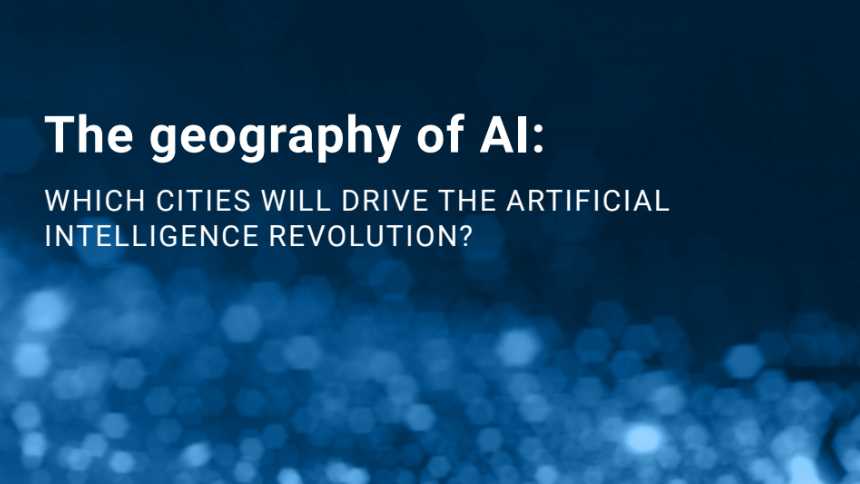
New report from Brookings spotlights communities best positioned to leverage AI
Employing seven basic measures of AI capacity, the report benchmarks regions on the basis of their core AI assets in research and commercialization.
There’s a new study released by the Brookings Institution that examines artificial intelligence (AI) from the perspective of the technology being a catalyst for economic growth at the state or sub-state regional level.
It is titled “The Geography of AI: Which Cities Will Drive the Artificial Intelligence Revolution?” Employing seven basic measures of AI capacity, the report benchmarks regions on the basis of their core AI assets and capabilities as they relate to two basic dimensions: AI research and AI commercialization. In doing so, the assessment categorizes metro areas into five tiers of regional AI involvement and extracts four main findings reflecting that involvement.
Overall, the report finds that:
- The U.S. AI industry is growing rapidly, but is still emergent and relatively limited in scope.
- AI activity is highly concentrated in a short list of “superstar” metro areas and “early adopter” hubs, often arrayed along the coasts.
- Numerous research and contracting centers owe their standing to federal R&D flowing into major universities.
- Nearly 90 additional communities are potential centers of future AI growth, especially where large national or global firms are driving adoption.
“By all measures, the Bay Area — including both the San Francisco and San Jose metropolitan areas — now reigns as the nation’s dominant center for both AI research and commercialization activities,” the report notes. There are also what Brookings characterizes as “early adopter” metro areas that have shown above-average involvement in AI activities. In that category are eight large tech hubs — New York; Boston; Seattle; Los Angeles; Washington, DC; San Diego; Austin, TX; and Raleigh, NC — and five smaller metro areas that have substantial AI activities relative to their size: Boulder, CO.; Lincoln, NE.; Santa Cruz, CA; Santa Maria-Santa Barbara, CA; and Santa Fe, NM.
Two other categories of possibilities include:
- Twenty-one metropolitan areas that have built up sizable AI capacities by capturing significant federal spending on AI-related projects and
- Eighty-seven additional metro areas that have developed some AI research and commercialization capacities, but at levels well below the average of the 36 more
established metro areas.
This latter, less developed group includes some of the nation’s largest commercial hubs, such as Atlanta, Chicago, Houston, Dallas, and Detroit, as well as small college towns such as Athens, GA (University of Georgia), State College, PA (Pennsylvania State University), and Bloomington, IL (Illinois State University). Several up-and-coming tech hubs — including Fort Collins, CO; Provo, UT; and Nashville — are also on the list.
Like what you've read?
Forward to a friend!

